
Université de Montréal
Département de microbiologie, infectiologie et immunologie
What do I like? Wild things 😜 yet phages are my favorite!
Merci à toutes celles et ceux qui ont contribué.
📘 English version coming soon!

Merci à toutes celles et ceux qui ont contribué.
📘 English version coming soon!

In oysters, some stay identical for years.
With >1,200 phages & 600 Vibrio genomes, we reveal long-term stability and new mobile elements.
Proud of this collaborative work across our teams (Roscoff-UdeM and @epcrocha.bsky.social www.biorxiv.org/cgi/content/...

In oysters, some stay identical for years.
With >1,200 phages & 600 Vibrio genomes, we reveal long-term stability and new mobile elements.
Proud of this collaborative work across our teams (Roscoff-UdeM and @epcrocha.bsky.social www.biorxiv.org/cgi/content/...
lab! In the first, we uncover a new mechanism of satellite transfer: cf-PICIs hijack tails from diverse phages to spread across species.
@imperialcollegeldn.bsky.social
www.cell.com/cell/fulltex...

lab! In the first, we uncover a new mechanism of satellite transfer: cf-PICIs hijack tails from diverse phages to spread across species.
@imperialcollegeldn.bsky.social
www.cell.com/cell/fulltex...

Phil. Trans. R. Soc. B by @fredoleroux.bsky.social
royalsocietypublishing.org/doi/10.1098/...

Phil. Trans. R. Soc. B by @fredoleroux.bsky.social
royalsocietypublishing.org/doi/10.1098/...

"Des sphères aux spirales, des extrémophiles aux probiotiques: plongez dans l’univers fascinant des bactéries ! "
Appéro- Science, qui dit mieux? #cinqascience #5ascience


"Des sphères aux spirales, des extrémophiles aux probiotiques: plongez dans l’univers fascinant des bactéries ! "
Appéro- Science, qui dit mieux? #cinqascience #5ascience

www.sciencedirect.com/science/arti...

www.sciencedirect.com/science/arti...
"Des sphères aux spirales, des extrémophiles aux probiotiques: plongez dans l’univers fascinant des bactéries ! "
Appéro- Science, qui dit mieux? #cinqascience #5ascience


"Des sphères aux spirales, des extrémophiles aux probiotiques: plongez dans l’univers fascinant des bactéries ! "
Appéro- Science, qui dit mieux? #cinqascience #5ascience
New study (Institut Pasteur, CNRS, Université Paris Cité & Montréal): ~10% of gene cassettes may defend against phages.
🛠️ One step closer to smarter therapies.
🔗 www.pasteur.fr/en/research-...
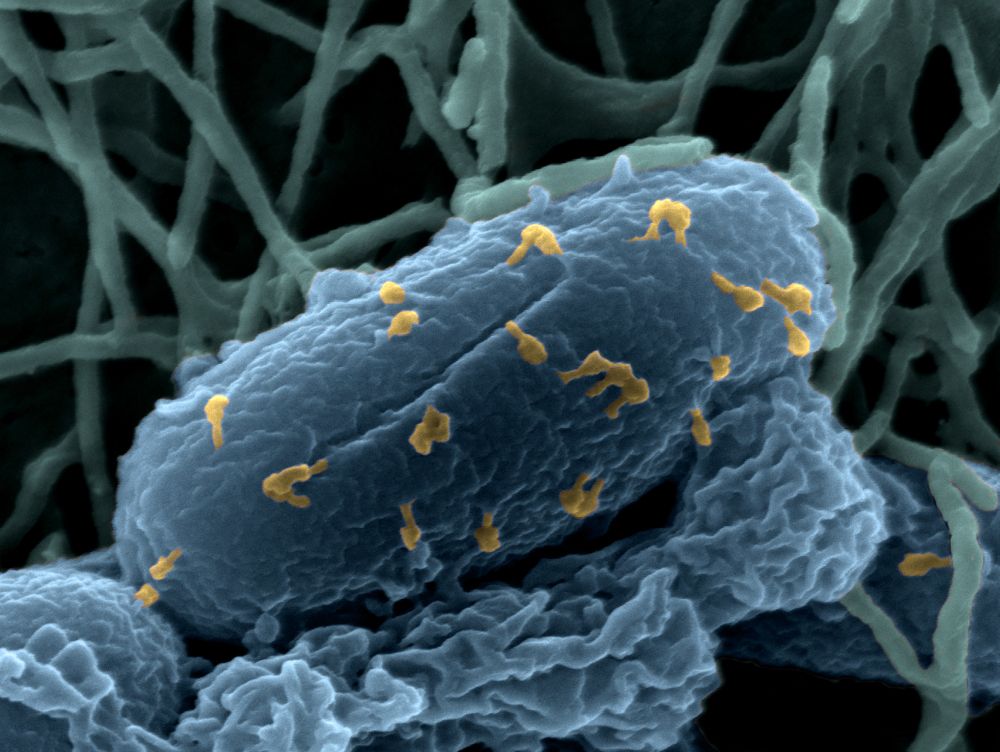
New study (Institut Pasteur, CNRS, Université Paris Cité & Montréal): ~10% of gene cassettes may defend against phages.
🛠️ One step closer to smarter therapies.
🔗 www.pasteur.fr/en/research-...
We show that a sub-lineage of 7th pandemic V. cholerae has acquired mobile genetic elements packed with phage defense systems—rendering it multi-phage resistant 😳 ..... 1/3
www.nature.com/articles/s41...
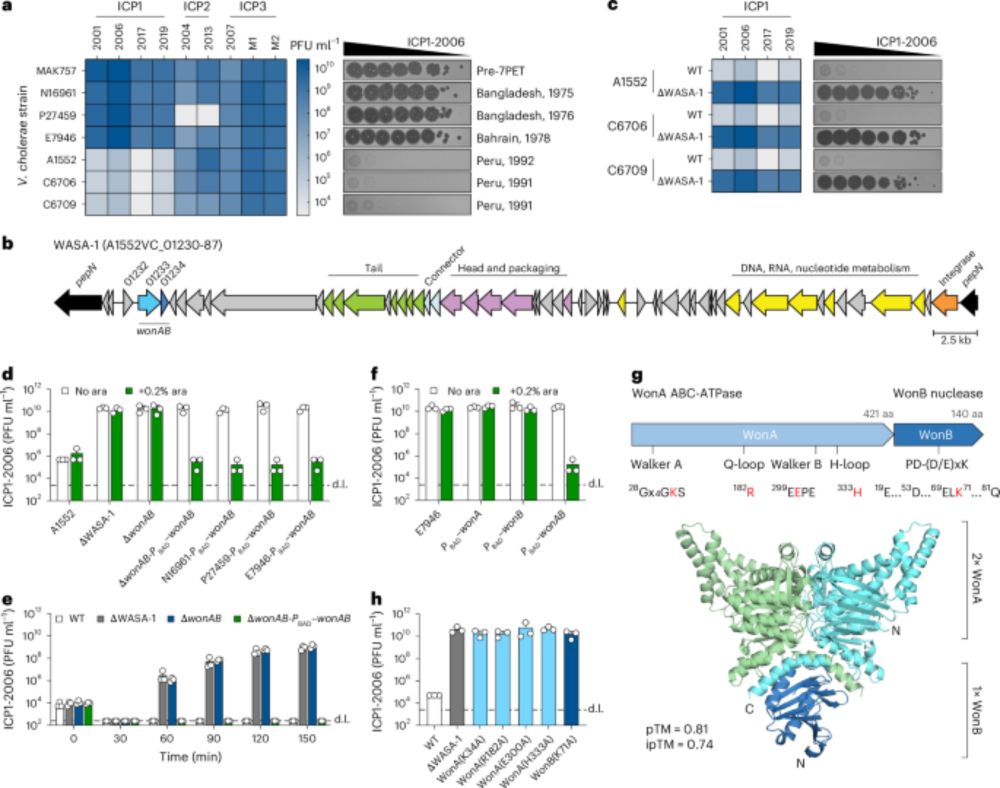
We show that a sub-lineage of 7th pandemic V. cholerae has acquired mobile genetic elements packed with phage defense systems—rendering it multi-phage resistant 😳 ..... 1/3
www.nature.com/articles/s41...

www.science.org/doi/10.1126/...
+ a similar story in V. parahaemolyticus by @landongetz.bsky.social from @themaxwelllab.bsky.social
www.nature.com/articles/s41...
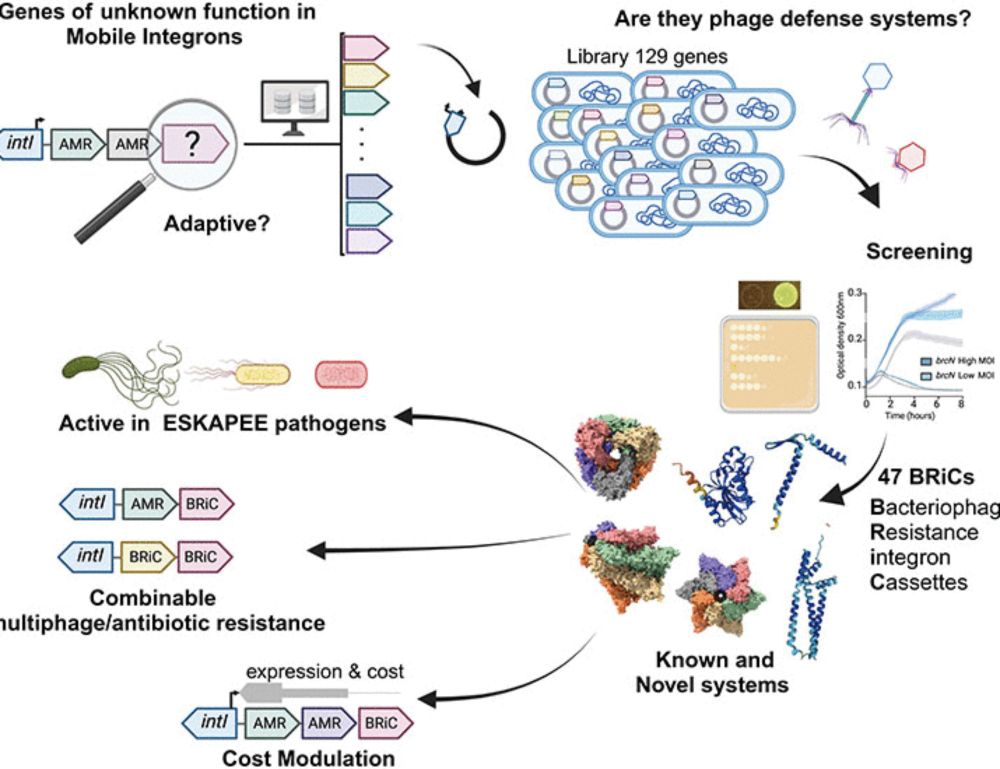
www.science.org/doi/10.1126/...
+ a similar story in V. parahaemolyticus by @landongetz.bsky.social from @themaxwelllab.bsky.social
www.nature.com/articles/s41...
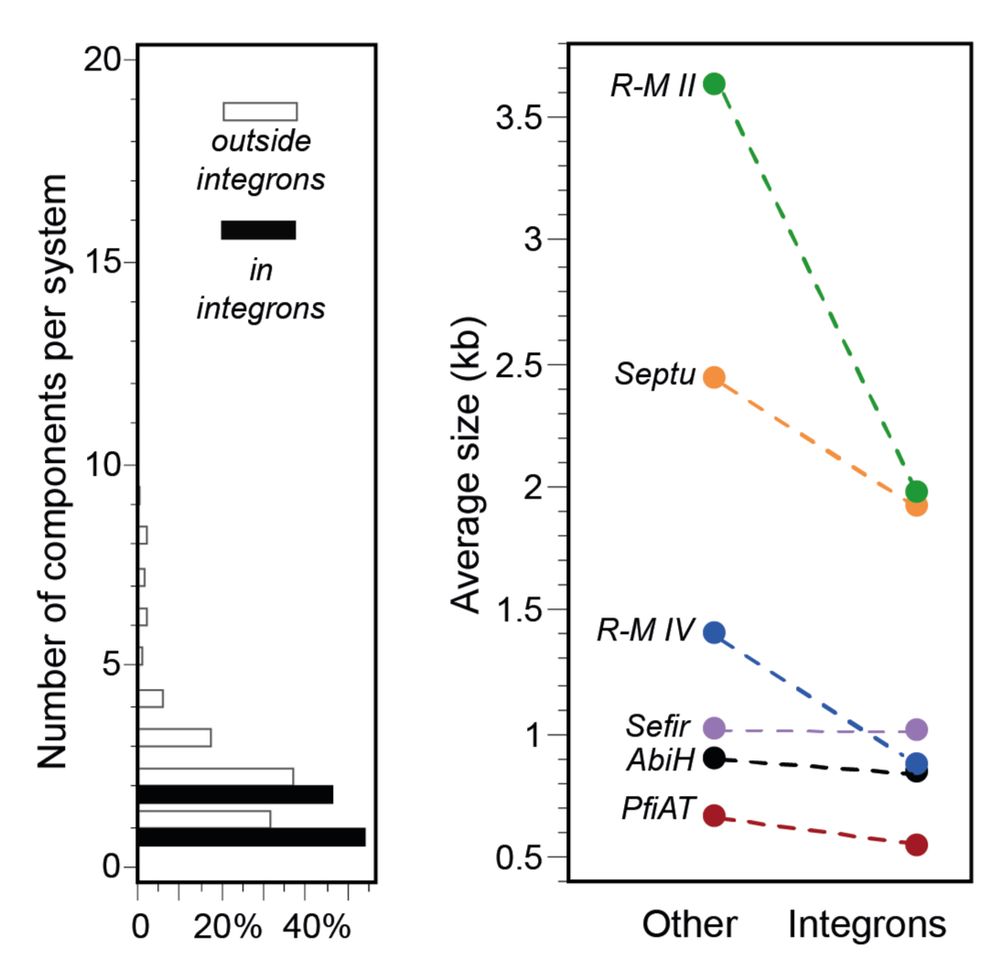
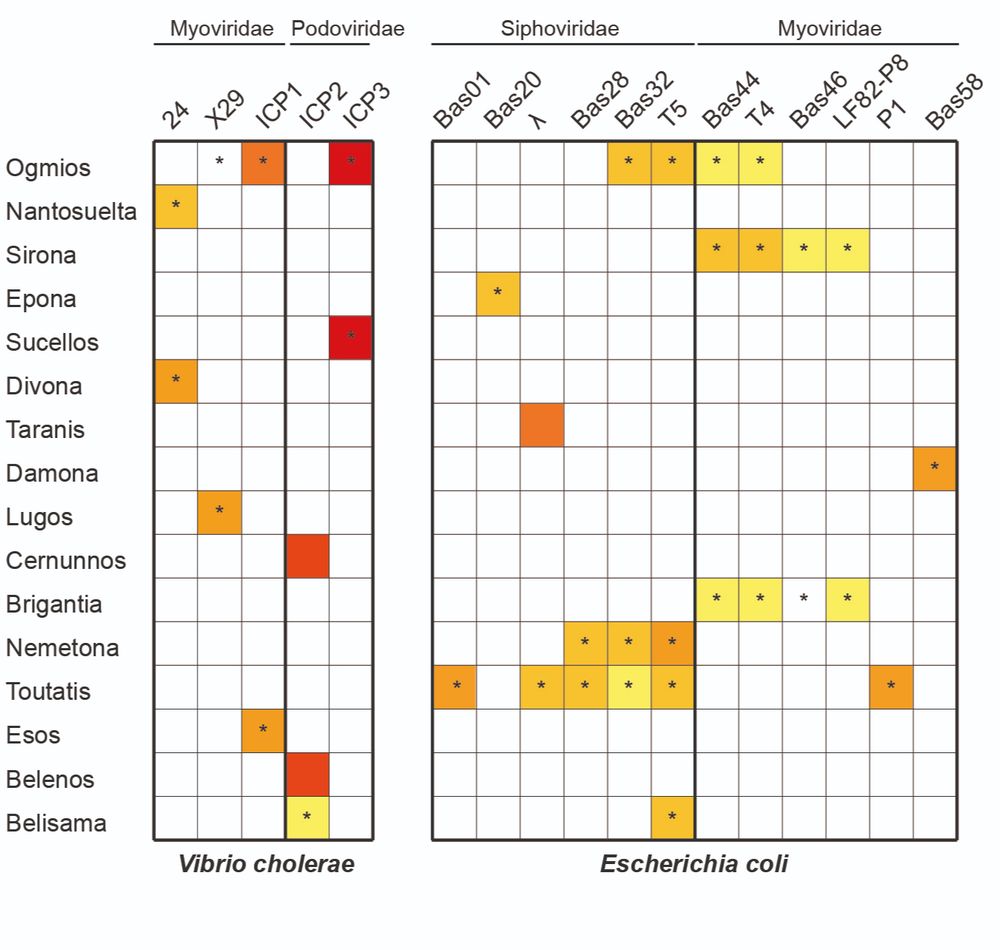
In collaboration with the Rocha lab, we show in our new paper that cassettes of these large platforms encode many known anti-phage defenses, and uncovered 16 new ones.
www.science.org/doi/10.1126/...
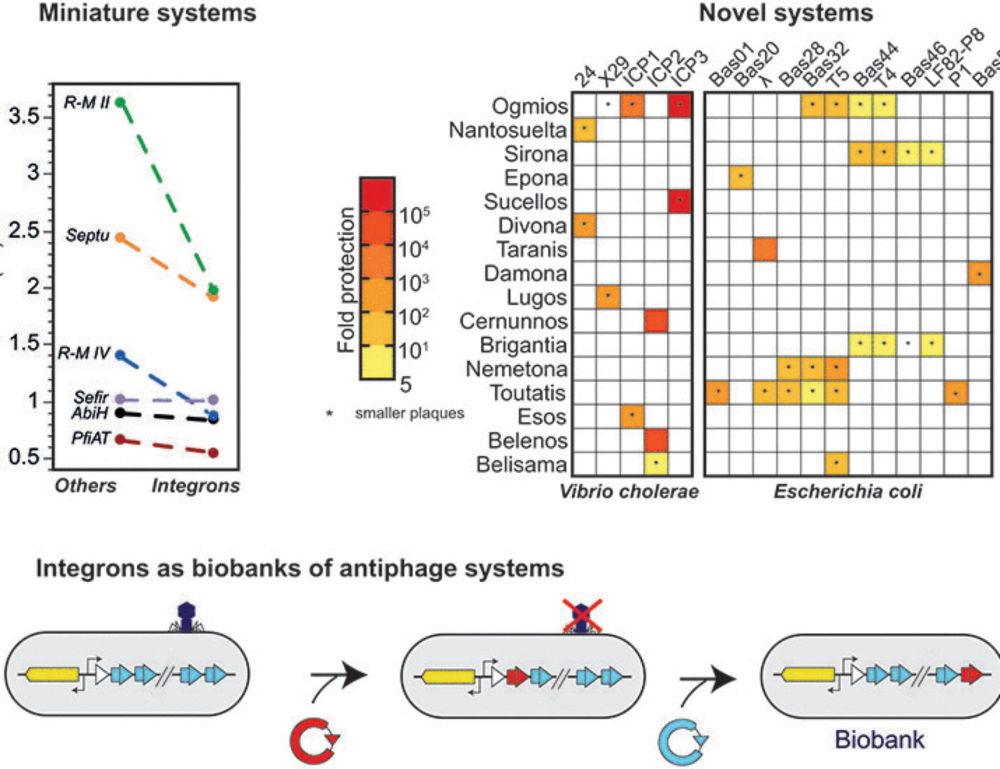
In collaboration with the Rocha lab, we show in our new paper that cassettes of these large platforms encode many known anti-phage defenses, and uncovered 16 new ones.
www.science.org/doi/10.1126/...
Many thanks to everyone involved, especially my supervisor @epcrocha.bsky.social
bsky.app/profile/bapt...
In collaboration with the Rocha lab, we show in our new paper that cassettes of these large platforms encode many known anti-phage defenses, and uncovered 16 new ones.
www.science.org/doi/10.1126/...

Many thanks to everyone involved, especially my supervisor @epcrocha.bsky.social
bsky.app/profile/bapt...



Pas de silence. / No silence.
Pas de haine chez nous. / No hate here.
🇨🇦 Liberté, justice, solidarité. / 🇨🇦 Freedom, justice, solidarity.
Résistons ensemble! ✊ / Let’s resist together! ✊
#CanadaLibre #DefendDemocracy #LoveWins
Pas de silence. / No silence.
Pas de haine chez nous. / No hate here.
🇨🇦 Liberté, justice, solidarité. / 🇨🇦 Freedom, justice, solidarity.
Résistons ensemble! ✊ / Let’s resist together! ✊
#CanadaLibre #DefendDemocracy #LoveWins

